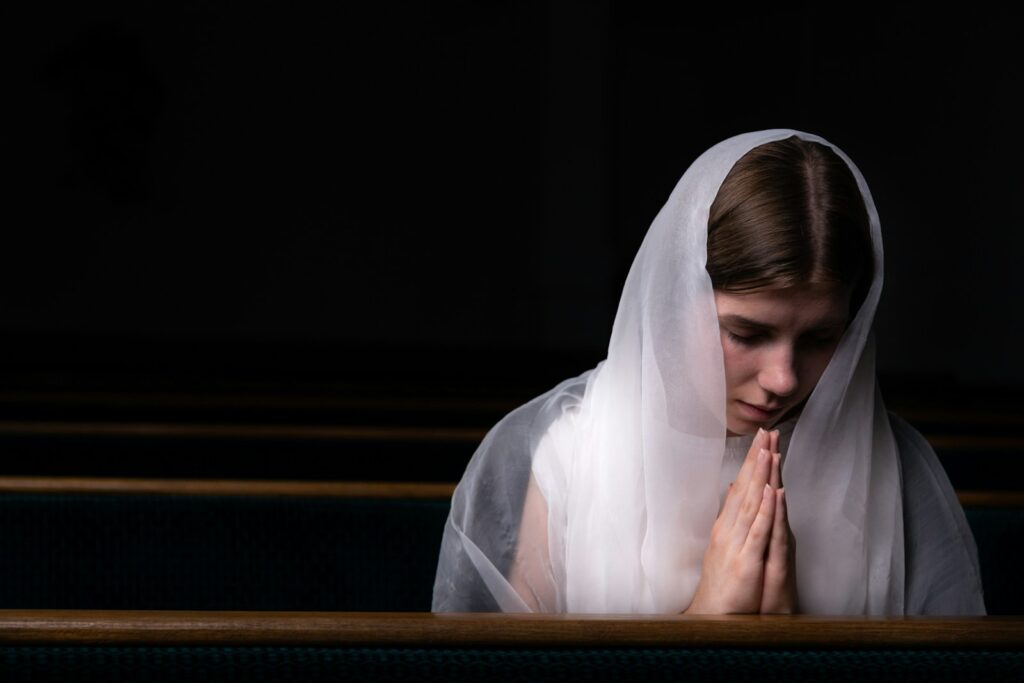Faith often carries stereotypes, and Christianity is no exception. Over the centuries, different cultures, media portrayals, and even misunderstandings among believers themselves have created assumptions that don’t always reflect the reality of Christian life. Christianity, which began in the 1st century AD with the teachings of Jesus Christ, has grown into the world’s largest religion with diverse traditions and denominations. Yet, misconceptions remain widespread. Below are fifteen of the most common misunderstandings people hold about Christians, each explained in detail to bring clarity and balance.
1. Christians Think They Are Sinless

A frequent misconception is that Christians see themselves as morally flawless. In reality, Christianity is built on the recognition of human imperfection and the need for God’s forgiveness. Believers openly acknowledge their struggles with sin and aim for growth rather than claiming perfection. While some individuals may appear self-righteous, the essence of Christian teaching emphasizes humility and dependence on grace. The faith focuses on continual transformation rather than declaring a person morally superior from the start, which often gets misunderstood by outsiders.
2. Christianity Is Anti-Science

Many people assume Christians outright reject scientific knowledge. Historically, conflicts like Galileo’s trial created this impression, but in truth, Christianity has long valued learning. Renowned figures such as Gregor Mendel and Isaac Newton were devout Christians whose faith inspired their research. Today, many believers embrace both science and spirituality, seeing them as complementary ways of understanding creation. The stereotype that faith and science cannot coexist oversimplifies a complex relationship where curiosity and belief often go hand in hand.
3. Christians Hate Non-Believers

It is often said that Christians are intolerant of people outside their religion. While historical conflicts have shaped this image, Jesus’ teachings emphasize loving one’s neighbor and even enemies. Modern Christian communities work alongside people of different beliefs through interfaith dialogue and humanitarian service. Though some extremist groups misrepresent this message, the larger body of Christianity teaches respect and kindness toward all. This misconception continues mainly because the media highlights exceptions rather than the broader, peaceful practices of everyday Christians.
4. Christians Equate Wealth with Holiness

Some assume Christianity teaches that financial prosperity equals spiritual blessing. While certain groups promote the “prosperity gospel,” this is not a universal belief. The Bible frequently warns against greed and encourages generosity and humility instead. True Christian faith values compassion, service, and character above material wealth. Although wealth may be seen as a gift, it is not evidence of holiness. This stereotype persists largely because of high-profile preachers, but it does not reflect the core of Christian teaching.
5. Christians Never Doubt Their Faith

Another misconception is that Christians never wrestle with doubt. From the earliest disciples to modern believers, questions have always been part of the faith journey. Thomas, one of Jesus’ apostles, famously expressed doubt before believing. Many Christians experience moments of uncertainty and seek answers through scripture, prayer, or community discussion. Doubt is not seen as weakness but as a step toward deeper understanding. This reality challenges the stereotype that faith means blind or unquestioning acceptance.
6. Christianity Is Just About Rules

A common myth is that Christianity is mainly a list of restrictions. While the faith does include moral guidelines, its essence lies in a relationship with God. Rules exist to help believers live healthier, more compassionate lives, not to impose guilt. The central message emphasizes love, forgiveness, and transformation through grace. Misunderstandings often arise when outsiders see only rituals or prohibitions, missing the deeper foundation of freedom and joy that defines the Christian walk.
7. Christians Avoid Intellectual Thinking

Many believe Christians abandon critical thought in favor of blind faith. Yet, Christianity has produced countless scholars, philosophers, and educators. Institutions like Oxford and Harvard were originally founded with Christian principles. Faith and intellect are not at odds but often intertwined, with study and reflection enriching spiritual life. Christian theology itself requires deep reasoning about moral, historical, and philosophical issues. The stereotype of anti-intellectualism fails to recognize Christianity’s contributions to global education and philosophy.
8. Christians Reject Enjoyment of Life

Some view Christians as people who avoid joy, seeing life as only duty. In reality, Christianity encourages gratitude and celebration of life’s blessings. Art, music, and festivals are deeply rooted in the tradition. The faith teaches moderation but not rejection of happiness. Christians believe joy is a gift from God and a reflection of His creation’s goodness. The stereotype likely stems from misinterpretations of discipline, where restraint is mistaken for rejection of life’s pleasures.
9. Christianity Suppresses Women

Another misconception is that Christianity universally oppresses women. While history shows patriarchal practices, Jesus himself treated women with dignity, allowing them to be central figures in his ministry. The first witnesses of his resurrection were women, highlighting their importance. Many denominations today advocate for equality, leadership, and education for women. Although differences remain across traditions, Christianity overall values women’s dignity and role in society. The stereotype overshadows the many positive contributions of women in Christian history and communities.
10. Christians Believe Only They Can Be Good

A common myth is that Christians see morality as exclusive to their faith. While salvation is central to Christian belief, it does not deny the ability of others to act kindly or morally. The idea that goodness is confined to Christians misunderstands the teaching that all humans are created in God’s image. Christians recognize compassion and justice in people of all backgrounds, viewing such actions as reflections of shared humanity rather than ownership of morality.
11. Christians Don’t Care About Nature

It is often said Christians disregard the environment, believing the earth is temporary. Yet scripture emphasizes stewardship and caring for creation. Many churches lead environmental initiatives and promote sustainable living. Christians see the world as God’s creation entrusted to humanity for care. While interpretations vary, the stereotype of neglect does not reflect the broader emphasis on responsibility and preservation. This misunderstanding likely persists because of a few who dismiss ecological concerns, not the faith as a whole.
12. All Christians Believe the Same Things

Some assume Christianity is monolithic, but the faith spans numerous denominations like Catholicism, Protestantism, and Orthodoxy, each with unique traditions. Even within these groups, practices and interpretations differ widely. Despite diversity, Christians share central beliefs in Jesus and his teachings. The misconception of uniformity overlooks the richness of global Christianity, where cultural and theological differences add depth rather than erase unity. Recognizing this diversity helps correct the assumption of one rigid expression of faith.
13. Christians Are Politically United

A frequent stereotype is that Christians share identical political views. While values may guide their choices, Christians come from every political background and culture. Their beliefs lead them to support a wide range of causes, from human rights to social justice. The assumption of political uniformity often arises from vocal groups dominating headlines, but the broader Christian population represents diverse perspectives. Faith informs values but does not dictate identical political allegiance, making this misconception overly simplistic.
14. Christians Reject Modern Culture Entirely

It is sometimes thought that Christians isolate themselves from culture, avoiding art, entertainment, or public life. While some communities choose separation, most engage fully with cultural contributions, filtering them through their values. History shows Christian influence in music, art, and literature, shaping entire eras. Modern believers continue participating in film, social media, and cultural dialogue. Rather than rejection, Christianity often seeks discernment, embracing what aligns with its message while avoiding what conflicts with its values.
15. Christians Only Care About Heaven

Some believe Christians live with little concern for present life, focusing only on eternity. While hope in heaven is central, Christians also emphasize living purposefully on earth. Acts of service, compassion, and community engagement are seen as vital expressions of faith here and now. Believers are called to bring hope and justice into daily life, not simply wait for the afterlife. The stereotype overlooks Christianity’s deep involvement in education, healthcare, and humanitarian efforts throughout history.
Comments